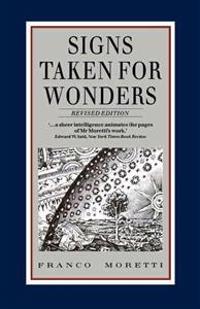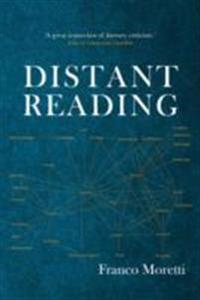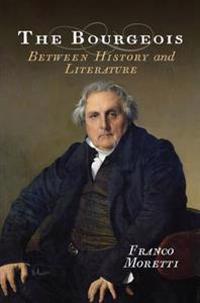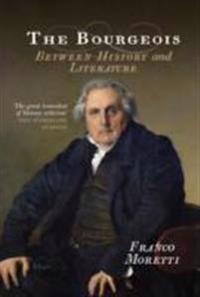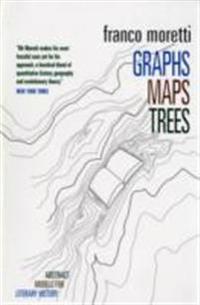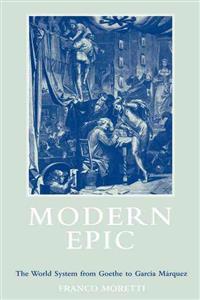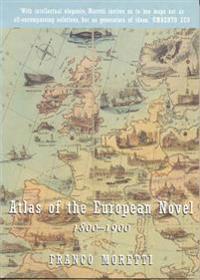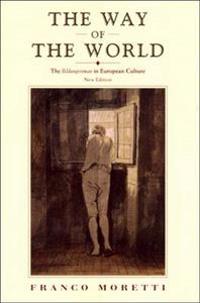Signs Taken for Wonders (Pocket)
avFranco Moretti
ISBN: 9780860919063 - UTGIVEN: 1988-05Shakespearean tragedy and "Dracula," Sherlock Holmes and "Ulysses," "Frankenstei "and "The Waste Land"--all are celebrated "wonders" of modern literature, whether in its mandarin or popular form. However, it is the fact that these texts are so central to our contemporary notion of literature that so[...]
Distant Reading (Häftad)
avFranco Moretti
ISBN: 9781781680841 - UTGIVEN: 201305How does a literary historian end up thinking in terms of z-scores, principal component analysis, and clustering coefficients? The essays in Distant Reading led to a new and often contested paradigm of literary analysis. In presenting them here Franco Moretti reconstructs his intellectual trajectory[...]
The Bourgeois (Inbunden)
avFranco Moretti
ISBN: 9781781680858 - UTGIVEN: 201305"The bourgeois ...Not so long ago, this notion seemed indispensable to social analysis; these days, one might go years without hearing it mentioned. Capitalism is more powerful than ever, but its human embodiment seems to have vanished. 'I am a member of the bourgeois class, feel myself to be such, [...]
The Bourgeois (Häftad)
avFranco Moretti
ISBN: 9781781683040 - UTGIVEN: 2014-07"The bourgeois ...Not so long ago, this notion seemed indispensable to social analysis; these days, one might go years without hearing it mentioned. Capitalism is more powerful than ever, but its human embodiment seems to have vanished. 'I am a member of the bourgeois class, feel myself to be such, [...]
Graphs, Maps, Trees (Pocket)
avFranco Moretti
ISBN: 9781844671854 - UTGIVEN: 200709The 'great iconoclast of literary criticism' ("Guardian") reinvents the study of the novel. Franco Moretti argues heretically that literature scholars should stop reading books and start counting, graphing, and mapping them instead. He insists that such a move could bring new lustre to a tired field[...]
Modern Epic (Häftad)
avFranco Moretti
ISBN: 9781859840696 - UTGIVEN: 1996-03"Take Faust, what is it? A 'tragedy,' as its author states? A great philosophical tale? A collection of lyrical insights? Who can say. How about Moby-Dick? Encyclopedia, novel or romance? Or even a 'singular medley,' as one anonymous 1851 review put it? . "It is no longer a novel," T.S. Eliot said o[...]
Atlas of the European Novel 1800-1900 (Pocket)
avFranco Moretti
ISBN: 9781859842249 - UTGIVEN: 199908In a series of one hundred maps, Franco Moretti explores the fictionalization of geography in the nineteenth-century novel. Balzac's Paris, Dickens's London and Scott's Scottish Lowlands are mapped, alongside the territories of Spanish picaresque novels, African colonial romances and Russian novels [...]
The Way of the World (Häftad)
avFranco Moretti
ISBN: 9781859842980 - UTGIVEN: 200008Willhelm Meister, Elizabeth Bennet, Julian Sorel, Rastignac, Jane Eyre, Bazaroz, Dorothea Brooke...the Golden Age of the European novel discovers a new collective protagonist: youth. It is problematic and restless youth - 'strange' characters, as their own creators often say - arising from the downf[...]

